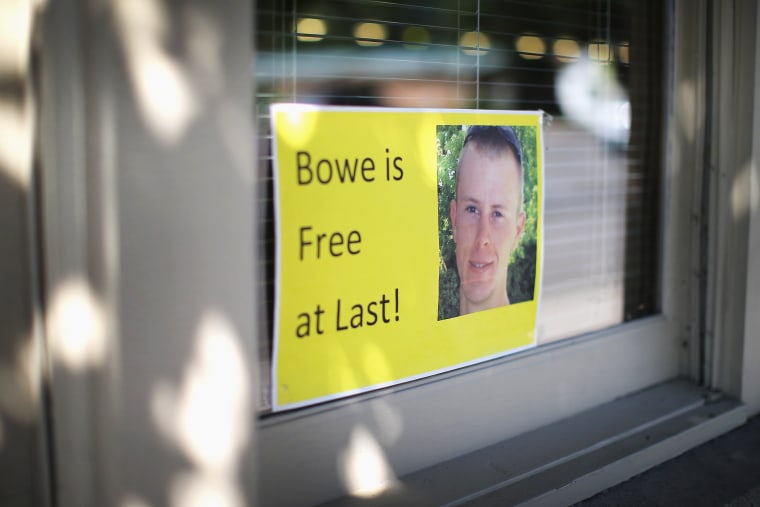Two months after being freed from Taliban captivity, Sgt. Bowe Bergdahl is being formally questioned by the Army on Wednesday about his disappearance and the five years he spent as a prisoner of war.
Eugene Fidell, Bergdahl's attorney, said that questioning began this morning at Fort Sam Houston in San Antonio, Texas. It is currently unclear how long the questioning will continue. Army investigators are looking to determine what happened on the night in June 2009 when Bergdahl walked off his base in eastern Afghanistan. The 28-year-old may face disciplinary action for leaving his post.
Bergdahl was rescued on May 31, when President Obama secured his release after agreeing to trade him for five Taliban fighters who had been held at Guantanamo Bay. Those prisoners were transferred to Qatari custody and must remain there for one year. Bergdahl is currently back on duty at a desk job in San Antonio.
The American soldier is being represented during the investigation process by Eugene Fidell, an expert on military law and lecturer at Yale. Fidell told NBC News that he and Bergdahl had been preparing for the meeting by going over a previous investigation the Army had conducted regarding his disappearance. He also provided photos of Bergdahl, the first since his release.
"My client has cooperated from the very beginning with all of the government's inquiries," Fidell said in the NBC News interview. "I anticipate that'll continue [Wednesday]. It's not going to be like pulling teeth."
Maj. Gen. Kenneth Dahl will question Bergdahl as part of what is known as an AR-15 investigation. The questioning process may involve multiple follow-ups and interviews with Bergdahl’s fellow soldiers. Once that's completed, Dahl will make a recommendation to the Army on whether the sergeant should face court martial-charges.
While Bergdahl is not currently facing any charges, some critics of the prisoner swap have suggested Bergdahl should face serious punishment for desertion. However, an Army report released shortly after his return found that Bergdahl had left posts before and returned, behavior that undermines assertions that he left in 2009 with no intent to come back – which would be needed to classify his actions as desertion.
Despite the controversy surrounding his return to the U.S., Fidell told NBC News that Bergdahl has adjusted well to being back in military service, "Particularly when you consider the fact that, not very long ago, he was living in unimaginable set of circumstances ... I think a lot of the credit for that has to go to the people within the army who have been very attentive to his needs,” he said.
